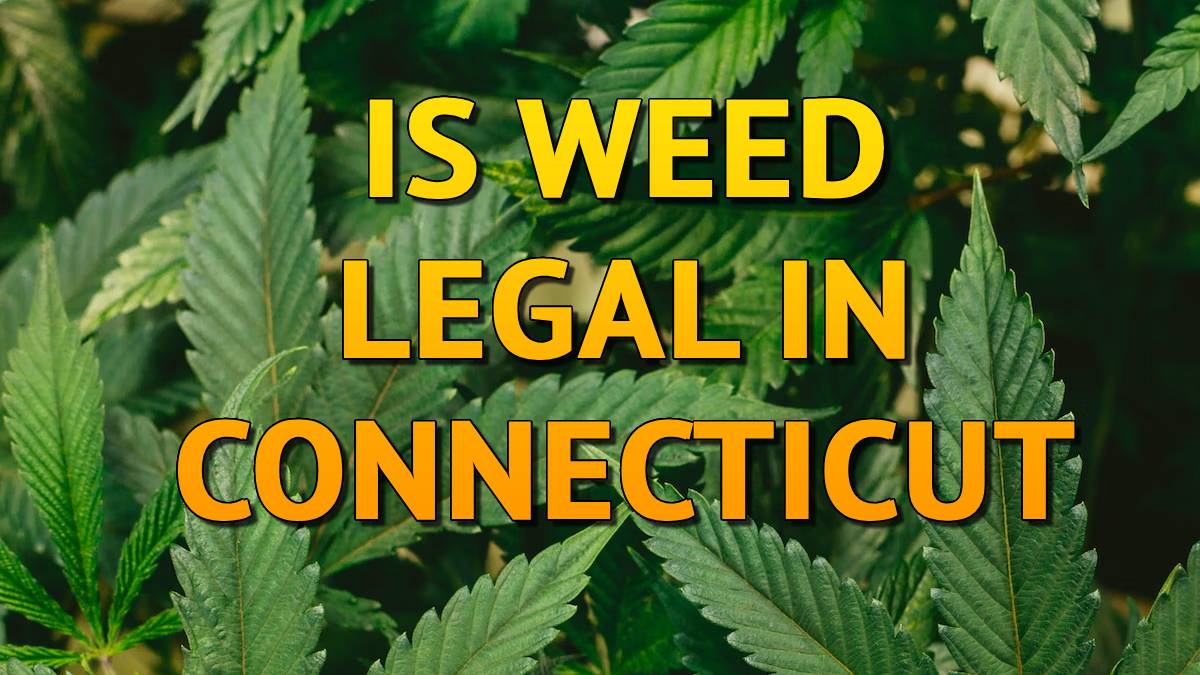Is recreational cannabis legal in Connecticut? Is medicinal marijuana legal in Connecticut? What about Connecticut’s’ CBD laws? Find out about the weed laws in Connecticut in this article.
Named after the Native American word ‘quinetucket,’ meaning “besides the long, tidal river,” Connecticut is home to the famous Connecticut river, which flows through New Hampshire, Vermont, Massachusetts, and Connecticut. Additionally, Connecticut was the first state to issue a telephone book in the United States, with a total of 50 names found within it.
Situated up in the northeastern part of the United States is the third smallest state in the country, Connecticut. Despite its petite size, Connecticut has a lot to offer. Home to the famous Yale University, residents and visitors to the state can kick back at Hammonasset Beach State Park or observe sea life at Mystic Aquarium. Also, for those craving Sin City, there are two of the largest casinos in North America in Connecticut.
In addition to fun-filled activities, Connecticut has a rich history. Otherwise known as the Constitution State, Connecticut is home to the country’s first written constitution in 1639. Connecticut is also referred to as the Nutmeg State. This is due to the high volume of nutmeg seeds that sailors brought back from long voyages. Furthermore, Connecticut is home to the world’s first nuclear-powered submarine, the USS Nautilus, which was built in Groton, Connecticut, in 1954.
One of the world’s most beloved culinary creations, the hamburger, was invented in Connecticut. So If you have ever sunk your teeth into a juicy meat-filled sandwich then you can thank the people of New Haven Connecticut for that one.
There are plenty of noteworthy facts to mention about the Nutmeg State, however, this article isn’t about Connecticut’s history or the invention of the hamburger. It’s about Connecticut’s connection to cannabis and whether or not it’s legal.
Let us take a deep dive into the laws surrounding cannabis in Connecticut in this article.
Is recreational cannabis legal in Connecticut?
Connecticut is considered a liberal state on many issues, but not in regards to cannabis. As of today, the recreational use of cannabis is illegal in Connecticut.
Connecticut has had a long history with cannabis that spans over a century. During World War II industrialized hemp was legal in most of the United States. During this time Connecticut was vast with hemp farms. After the war ended, there was a bevvy of anti-marijuana campaigns that pushed cannabis in a negative light. Subsequently, the US outlawed marijuana in all 50 States, including Connecticut.
Although cannabis is illegal for recreational purposes in Connecticut, the State Governor did decide in favor of decriminalization back in 2011. By no means does decriminalization render marijuana legal, but it is a huge step in the process.
Since the passing of Senate Bill 1014, possession of small amounts of cannabis constitutes a fine rather than a criminal charge. For first time offenders, possessing anything under a half-ounce is punishable by a civil penalty of up to $500. Possessing over a half-ounce sits outside the decriminalization laws and is punishable by a misdemeanor charge, substantial jail time, and a hefty fine.
Recreational Cannabis in Connecticut is currently illegal, but that status is most likely only temporary. With future elections upon us, top lawmakers say marijuana legalization will be a priority for Connecticut in the near future.
Is medicinal marijuana legal in Connecticut?
Connecticut is somewhat strict on cannabis laws, however, if you’re a resident of the state and are in need of marijuana for its medicinal benefits then you’re in luck. Medicinal marijuana is in fact legal in Connecticut.
In June 2012, Governor Malloy signed into law a medical marijuana program for Connecticut. After a long and drawn-out debate, the Senate voted 21 to 13 in favor of the medical marijuana bill.
Under the medical marijuana bill, patients and their caregivers must register with the Department of Consumer Protection. In order to qualify for a medical marijuana certificate, patients must be suffering from a debilitating disease. These diseases include, but aren’t limited to, cancer, glaucoma, AIDS, Parkinson’s disease, multiple sclerosis or epilepsy.
Those who have a medical marijuana card can access up to a months supply from an official medical marijuana dispensary. Unlike other pro-medical marijuana states, home cultivation is prohibited in Connecticut. Thankfully for patients, Connecticut is now abundant with medical marijuana dispensaries.
Consumption of medical marijuana is prohibited in public places. So those with legal access better think twice before lighting up a joint at the Mystic Aquarium.
Is CBD legal in Connecticut?
As many people are aware by now, CBD is legal in all 50 US states following the passing of the Farm Bill in 2018. Connecticut followed suit by passing Senate Bill 893 in 2019, which made hemp-derived CBD products legal in the nutmeg state.
It’s important to know that CBD is only legal in Connecticut if it stems from the hemp plant and contains no more than 0.3% THC. Medical marijuana patients can only use Cannabis-derived CBD. But don’t fret, because hemp-derived CBD still has many great properties of cannabis.
The great people of Connecticut and visitors alike can find CBD products all over the state. You can now get CBD topicals, oils, drinks, and various edibles. Research has suggested that CBD is beneficial for health ailments, however, Connecticut’s CBD laws don’t allow for these products to make any such claims.
CBD is a non-psychoactive component of the hemp and cannabis plant which is known to have many therapeutic benefits. The compound is known to be effective in treating ailments such as inflammation and anxiety, and can also be used as an analgesic.
Now that CBD is legal in Connecticut, why not swing by Hammonasset Beach State Park and sink your teeth into a juicy CBD hamburger.
Important Note: The information on this site has been created only for information about the laws. It is not prepared to promote illegal substances. Please do not use illegal substances. You can get help regarding addiction from a nearest health institution.

